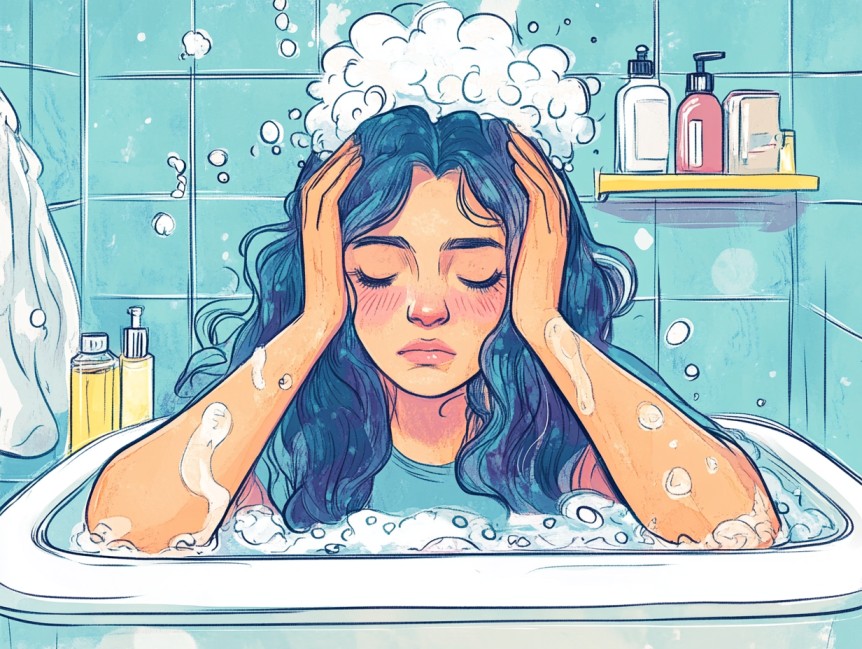The wellness industry promises a better, healthier, and more mindful life. From superfood smoothies to meditation apps, the message is clear: optimize enough, and you’ll unlock peak well-being. But what happens when self-care starts to feel like another obligation? When practicing mindfulness turns into a chore? When eating “clean” becomes restrictive rather than nourishing?
True wellness is about balance, not perfection. Yet, in the pursuit of a healthier life, many fall into patterns of obsession, guilt, and unrealistic expectations. Let’s explore three common pitfalls: the trap of “clean eating,” toxic positivity, and the commercialization of mindfulness.
When ‘Healthy Eating’ Becomes a Rigid Rule
Food is fuel, comfort, and culture. But in the age of wellness, it’s easy to slip into an unhealthy obsession with “clean eating.” The desire to nourish your body can morph into rigid food rules, moralizing meals, and anxiety over every ingredient. This phenomenon, often called orthorexia, replaces flexibility with fear.
Signs You Might Be Stuck:
- Labeling foods as “good” or “bad.”
- Feeling guilt or anxiety after eating something “off-plan.”
- Avoiding social events because the food isn’t “healthy enough.”
A Healthier Approach:
- No single food defines your well-being—balance matters more than purity.
- Instead of following internet trends, listen to your body’s needs.
- Ask yourself: Does this way of eating make me feel free, or does it control me?
The Pressure to ‘Just Be Happy’
We’ve all heard the phrases: “Good vibes only,” “Everything happens for a reason,” and “Just be positive!” While these messages are meant to inspire, they can also dismiss real emotions. This is toxic positivity—the idea that negative feelings should be suppressed, rather than acknowledged and processed.
How It Shows Up:
- Feeling guilty for experiencing sadness or frustration.
- Clinging on “Just think positive!” instead of genuine support.
- Believing stress or struggle means you’re failing at self-care.
A More Mindful Perspective:
- All emotions are valid—joy and sadness can coexist.
- Instead of forcing happiness, practice self-compassion: “This is tough, and that’s okay.”
- Mindfulness isn’t about eliminating discomfort—it’s about sitting with it without judgment.
Mindfulness Doesn’t Need to Be Expensive
Mindfulness is a tool for presence, clarity, and peace. Yet, in today’s world, it has been packaged and sold like a luxury product—high-end retreats and expensive courses that promise enlightenment. The result? Many feel they’re “failing” at mindfulness if they aren’t buying the latest wellness trend.
Red Flags to Watch For:
- Wellness Perfectionism—the relentless pursuit of the “perfect” self-care routine, turning rest and relaxation into yet another chore.
- Productivity-driven meditation—using mindfulness to work harder instead of truly slowing down and connecting to yourself.
- Feeling like you need to “buy” peace at a high price.
A Simpler Approach:
- Let go of the need to optimize everything—self-care isn’t a checklist. Embrace “good enough”. In wellness, small, consistent moments matter more than perfection.
- Practice mindfulness for presence, not productivity—let it be a space where you reconnect with yourself. Allow it to be a moment of stillness, free from expectations.
- Remember that peace isn’t something you buy—it’s something you cultivate with time.
Wellness Should Feel Freeing, Not Restrictive
True self-care isn’t about perfection or chasing an ideal. It’s about listening to yourself, honoring your needs, and letting go of the pressure to constantly improve. Balance is key—some days, self-care might look like meditation or movement; other days, it’s rest, laughter, or doing nothing at all.
Reflect On Your Self-Care Routines :
- Does this habit truly bring me peace, or is it another source of stress?
- Am I nurturing my well-being, or seeking validation?
- Is my wellness practice enriching my life, or confining it with rigid rules?
The healthiest mindset? Embrace balance—“good enough” is truly enough.
